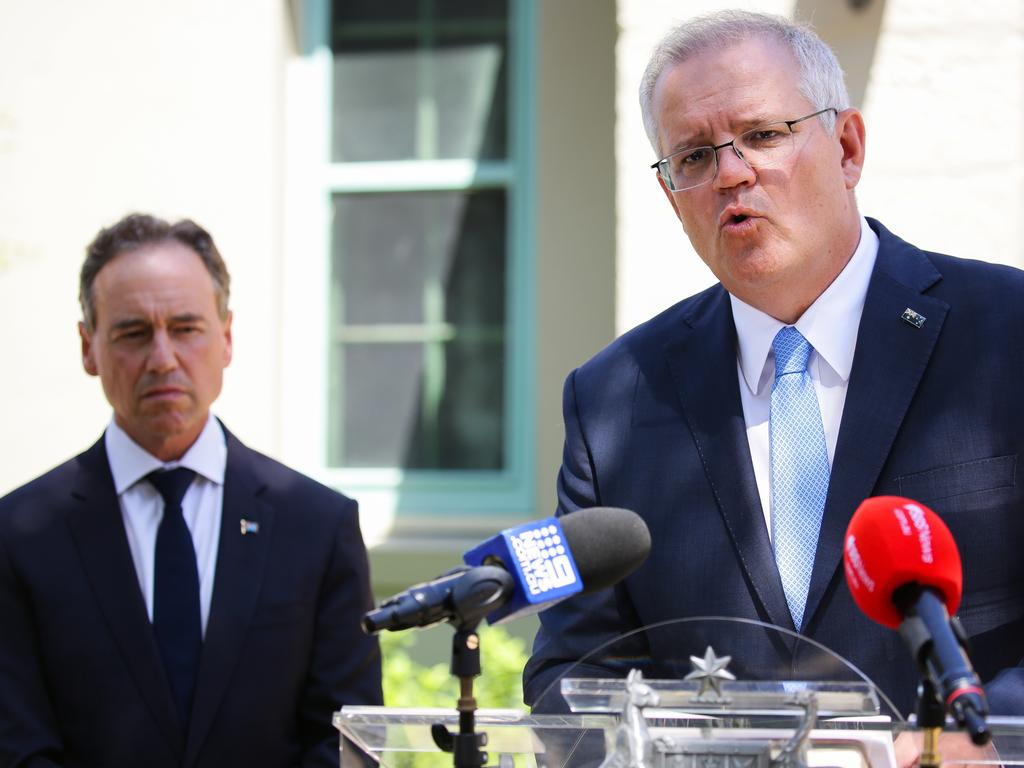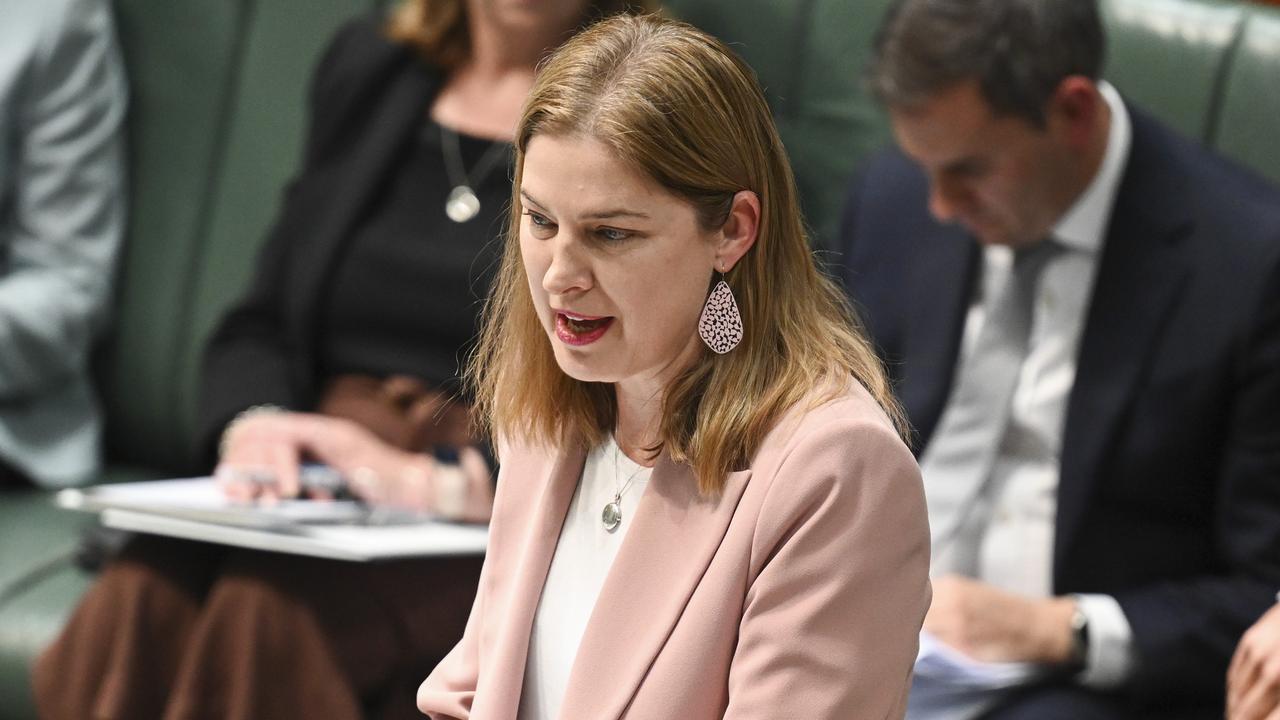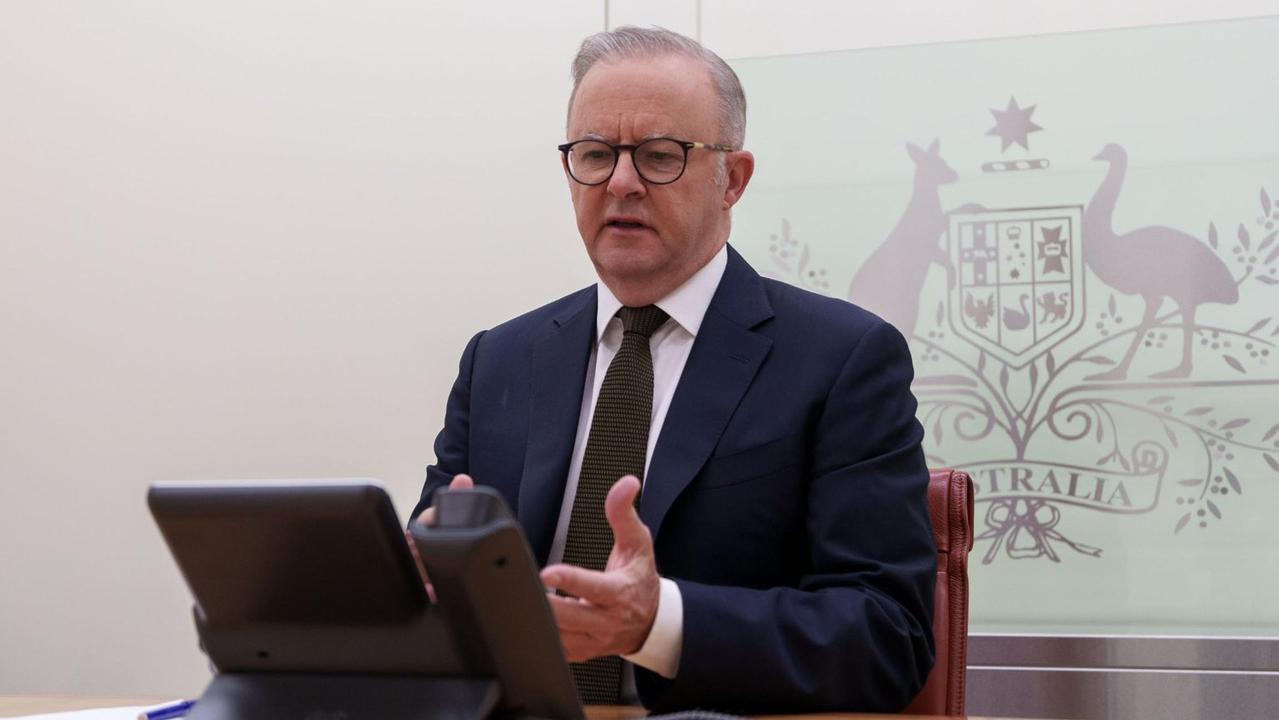Royal Commission report: Aged care system ‘besieged by neglect’
The two-year royal commission’s final report lists 148 recommendations for change to a sector beset with difficulties over the last decade.

The aged care system is “besieged by neglect”, the aged care royal commission has concluded, but the two commissioners are divided on the best model to regulate and fund the sector.
The two year royal commission’s final report lists 148 recommendations for change to a sector beset with difficulties over the recent decade, outlining a five-year road map for change.
Commissioner Tony Pagone said he and co-commissioner Lynelle Briggs agree about the many flaws in the aged care system, and on many, but not all, of the solutions.
“We agree that fundamental reform to the Australian aged care system is required, but we differ sharply in our opinion on certain aspects of the arrangements necessary to give effect to our common purpose of the new aged care system,” Mr Pagone said.
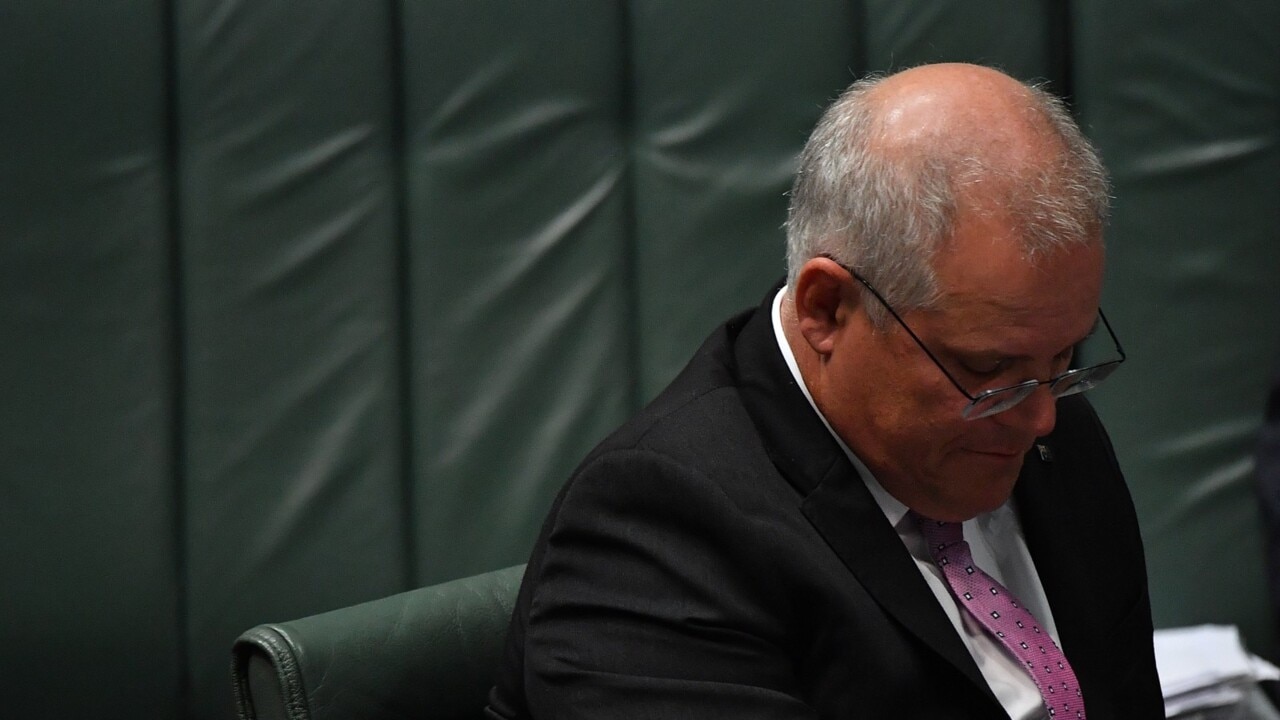
Mr Pagone said he favours a new Aged Care Commission that would operate independently of the government to regulate the sector, deal with quality and safety issues, and control funding.
But Ms Briggs favours a “government leadership” model, where government agencies continue to have oversight of these matters.
“Government (must) accept its responsibility to lead the aged care sector and to drive continuing reform of the sector so that reforms to improve the aged care system are rolled out progressively,” Ms Briggs said.
“In my view, only Government can do this in a system as large, complex and fragmented as the aged care system. Only Government can wield the resources and system oversight to make it happen.”
“The alternative of establishing a new Australian Aged Care Commission will only delay the important reforms that are required for the delivery of aged care services,” she said.
Mr Pagone singled out the failures of home care packages to meet the needs of older Australians, the level of staffing in nursing homes and the failure of aged care in Australians regions as particular areas of reform.
The commissioners also had similar though different options for funding the system, with Mr Pagone favouring a hypothecated levy from income, though didn’t offer a final figure. Ms Briggs said there should be a one per cent Aged Care Improvement Levy on income to support the system.
Generational change needed: PM
Scott Morrison flagged that it could take a “considerable amount of time” to achieve the change needed to fix the aged care sector, which had previously been described as “broken” by commissioners.
“Generational change is needed,” the Prime Minister said. “I thank the commissioners because they’re honest because they know there are no easy fixes. They themselves couldn’t agree on some fairly significant issues.”
“So they’ve honestly provided their different perspectives on that and I welcome that and we will consider those perspectives...This will take time. It will take quite considerable time to achieve the scale of change that we want to and need to.”
“The commissioner sets out a 5-year timeframe for the measures that are set out in their report and we must also take care in how we do this.”
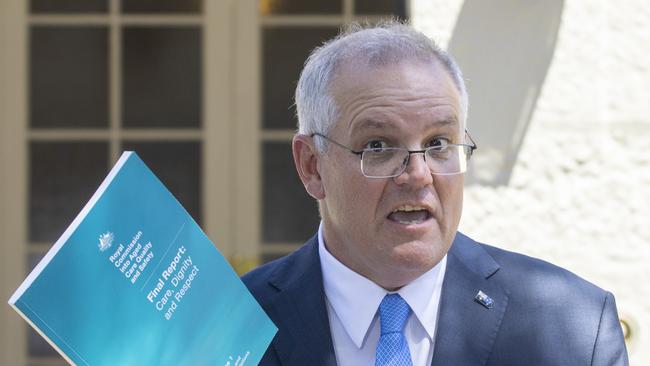
Mr Morrison said that the landmark commission’s final report is as shocking as he feared it would be, but he was committed to addressing the issues raised.
“The road map that it sets out to deal with fundamentally seeks a shift from a constrained system that focused on funding to providers to a needs-based system that puts the person at the centre,” he says. “That is the change.”
“No government has done that in the last 30 years and that is what the royal commission has found and, as a result, it requires some very significant change.”
“...I’m absolutely committing to taking this report and addressing the issues that are raised in this report and finding the best ways to achieve that. That’s what I’ve said. It won’t be easy. It will test everything in our Budget to everything else.”
Mr Morrison said that the aged care system needed to be brought into line with the nation’s health system.
“In our country we have a needs-based system of healthcare. In our country we don’t have a needs-based system of aged care. No government has done that ever and the result of that is what we read in this report today... That’s why I say that generational change is now required.”
Health Minister Greg Hunt said the Morrison government will complete an additional 1500 audits of aged care facilities per year under Aged Care Quality and Safety Commissioner Janet Anderson.
Regulation will also be introduced to ensure that elderly Australians are further protected against chemical and physical restraint.
Mr Hunt says tan additional 18,000 aged care workers would be trained to increase the capacity of the system and “lift numbers, lift the places we offer” in what will be a “critical step forward.”
He says the government will respond in full to the royal commission by May 31 as requested.
Report ‘tinkering, not tranformation: HSU
The Health Services Union says it is “dismayed” by the Morrison government’s “lack of ambition” to fix the embattled aged care sector, declaring its proposed $452m package to address the royal commission’s recommendations fail to address structural problems such as funding and lack of workers.
Health Services Union President, Gerard Hayes, on Monday said Scott Morrison’s response was “tinkering rather than transformation.”
“The Government is promising a more substantive package at the Federal Budget, but yet again the can gets kicked down the road,” he said.
“Two major reforms are needed to fix this sector. We need a substantial increase in the size of the workforce and we need to pay them more so they stay in the industry.”
“We also need a sustainable funding model. Economic research we commissioned for the Royal Commission shows we could fund a pay rise, an additional 59,000 aged care jobs and close to 90 minutes of additional resident care per day, through a 0.65 per cent increase in the Medicare levy.”
Report ‘a watershed moment’
The Older Persons Advocacy Network (OPAN) has welcomed the Royal Commission into Aged Care’s final report, declaring it a “watershed moment” that will see older people being placed at the centre of the transformation process.
OPAN CEO, Craig Gear, on Tuesday said that the aged care system in its current iteration was not rights based and did not have the structures and resources in place to ensure the rights of older Australians were respected and protected.
“A lack of capacity and lack of intent by many aged care providers to implement the Charter of Aged Care Rights in practice is a reflection of the deficits in the current system,” he said.
“This is a watershed moment, which must result in older people being placed at the centre of the aged care transformation process. OPAN will continue to support older people and work alongside the government and the aged care sector to make this happen.
“Older people must be actively engaged in this transformation through co-design to re-shape the aged care system to place vulnerable older people and older people with diverse characteristics and life experiences at its core”.
Report comes after two years of hearings
The final report comes after more than two years of hearings involving more than 640 witnesses, 38 research papers and 10,500 public submissions.
An interim report published in October 2019, entitled “Neglect” listed a raft of concerns about the “cruel and harmful” system, describing it as “woefully inadequate” to meet the needs of older Australians.
“Many people receiving aged care services have their basic human rights denied. Their dignity is not respected and their identity is ignored,” it read. “It is a shocking tale of neglect.”
In October last year counsel assisting the commission detailed more than 120 recommendations on how commissioners Briggs and Pagone might shape a future aged care system.
It was predicated on the creation of a new aged care act that ensured older people had a “universal right to high quality, safe and timely care and support.”
One of the key recommendations was for the creation of a new aged care commission, which would sit independently of the federal government, which is responsible for aged care, and control the accreditation and quality requirements of aged care providers, as well as funding.
The commissioners were divided about this approach, with Ms Briggs saying it was asking a lot of government to hand over $20 billion a year in public funds to a body it had no control over.
The commission also looked deeply into quality and safety issues, with counsel assisting noting that 50 sexual assaults per week were taking place in aged care settings.
And care workers described their frustration with not being able to take the time to provide quality of care for each resident, including time to just sit and listen to them.
While all stakeholders agreed that nursing home residents deserved more quality care and support, including better food, there were different proposed approaches to mandating care levels, from having minimum care hours per day by trained nursing and care staff to ensuring a registered nurse was on duty at all times.
The commission also heard aged care providers, especially smaller ones, were losing money as government funding didn’t adequately cover the needs of an increasingly frail cohort of residents.
Aged care providers estimated an additional $20 billion a year might be needed to bring aged care services, both in-home and in nursing homes, up to scratch.


